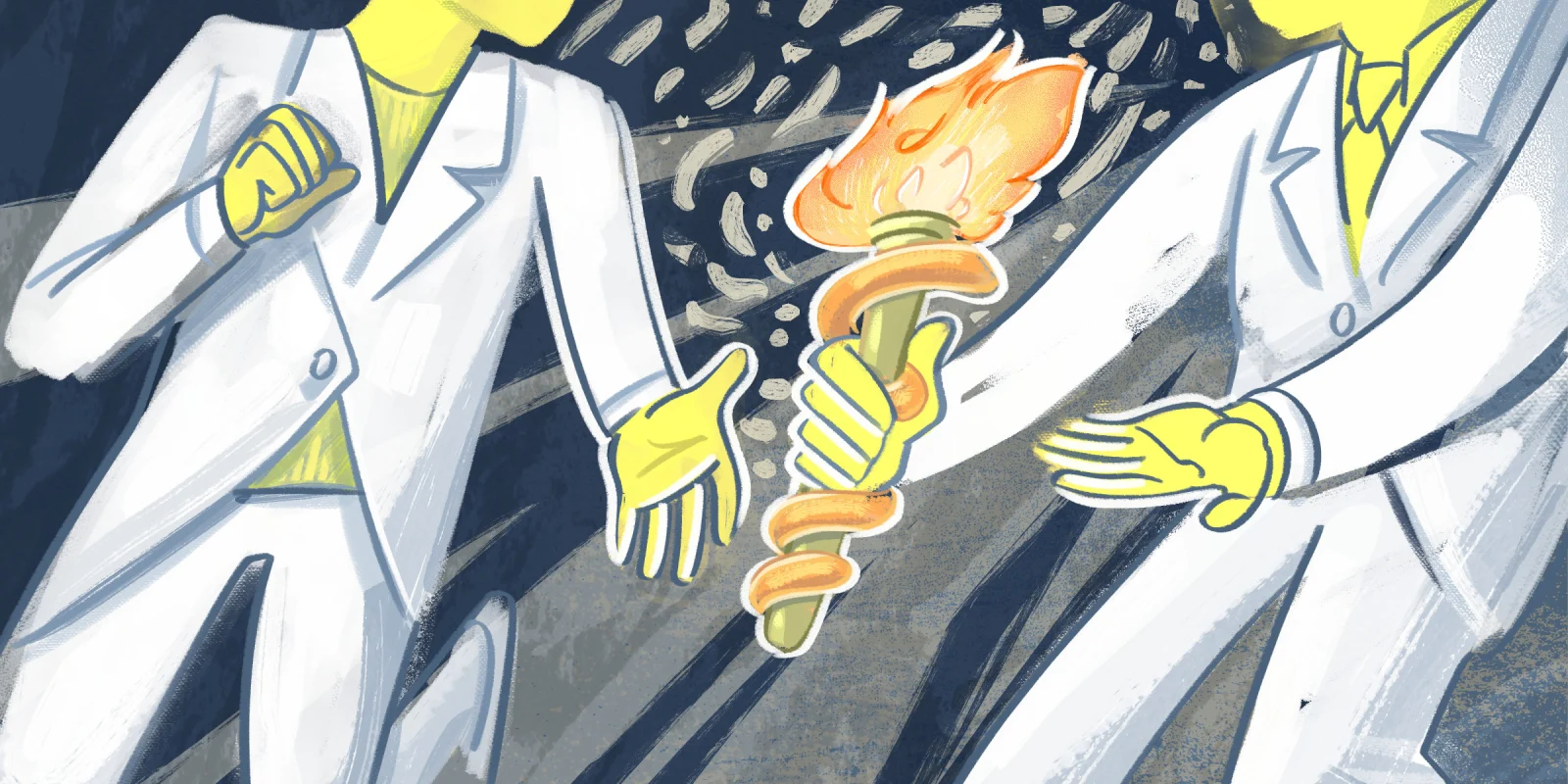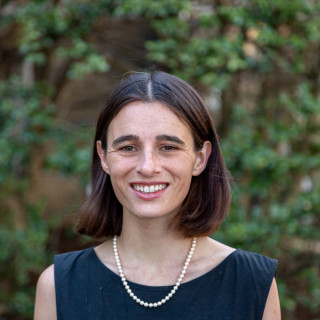Lately, I have been thinking a lot about what makes a good teacher a good teacher. In residency we are constantly learning, be it more explicitly through didacts or more often through our day-to-day experiences — i.e., by staffing a consult and discussing a nuanced clinical picture with an attending, by going over a CT scan with radiology, or by learning to see and respect tissue planes and how to expose and keep appropriate tension on said tissues in the OR.
While the didactics are important, I have found that most of my peers and attendings can give a decently informative lecture, and where the variation lies is in teaching outside the lecture hall.
There are two key teaching styles I’ve noticed in surgical training. The first style I like to call “thrown off into the deep end,” which actually isn’t as bad as it sounds. The philosophy is to let you struggle, and I have found that primarily, it's attendings who use this style. One such attending held camera for me while I, in the middle of the night as a relatively new intern, dissected out an angry, socked-in appendix from behind the cecum. I was terrified of getting into bowel and kept asking him if he wanted to take over. He said no and had me keep going. More recently, another attending timed me out to start a case with only a transitional year dermatology intern as first assist. The attending watched me mark the patient xiphoid to pubis for their ex-lap and joked, “Don’t tell me the patient has a congenital absence of midline,” as he left the room.
In both of these instances, I was terrified of harming the patient, of getting into bowel or somehow not finding midline (and then subsequently getting into bowel), but the reality was these attendings had some level of trust in me, and I am sure they could have fixed any mistake I could have made under the circumstances. They were a safety net but gave me the autonomy to struggle, and in that struggle I became a better surgeon — I was more aware of the harm I could inflict on my patient and became a more careful and confident operator as a result.
The second style of teaching is one I have seen by certain senior residents, and it reflects a moral obligation to uphold the highest standards in teaching and in patient care. As such, these seniors have only the highest expectations for their juniors. This style of teaching has a spectrum of phenotypes, and I have found that as a teacher, you can be kind and have high expectations or less kind and have the same high expectations — oddly enough, both to similar effect. As an intern, I had one senior resident I felt tormented by, and I was paired with her for months. She once told me to cry in the bathroom like an adult (and I did) and yelled at me countless times about minutia — not having written down one lab value, not having yet talked to social work, not knowing the dosage of a patient's home medication. I would go to the OR to run the list with her at the end of the day and would feel dread about some detail I had missed or about telling her about a discharge that fell through. Moreover, I was troubled by how kind she was to patients because it felt so disparate to how I was treated.
One weekend I was on call with her, covering the acute care surgery service, and she ordered pizza for a patient who had finally been cleared for a diet after months of living in the hospital with a feeding tube and not being able to truly eat. Another time when I was overwhelmed with consults, she saw a vascular patient with me in the ED late in the day when she could have otherwise been at home. She stayed to help me clean the patient’s leg, which not only had horribly painful venous stasis ulcers, but was also caked with months of dirt and debris. While my senior gently scrubbed the leg with chlorhexidine and picked off pieces of dirt with forceps from a suture removal kit, she spoke to the patient at length about her living situation and what brought her to the ED. She found out the patient’s husband, who normally helped the patient with wound care, was hospitalized, and so the patient hadn’t been able to care for herself in weeks.
Yes, this resident was strict and she sometimes yelled, but as time went on, I realized she made me and my peers better doctors. I held myself to the same standards she held me to — and these standards were the highest. I, too, would know all the details, wouldn't forget to write down each and every lab, and while I would make mistakes, I knew I was accountable for them and would learn from them. She taught me to have thick skin and to be resilient — an invaluable skill in surgical residency — and at the core of her teaching style was a moral obligation to provide patients the best care and to teach her residents to do so in the process.
These are not the only two styles of teaching, but I believe they are two of the most important ones. In residency, sometimes it is important to struggle for the sake of learning, with the awareness that you have people to help you when you really are in too deep. And in being a good teacher, especially to more junior residents, you have to allow them to struggle too at times — to hold them and yourself to high standards while also making space for kindness in human interactions and kindness toward yourself.
What do you remember about the best teacher you have had? Share in the comments.
Caitlin J. Cain is a second-year surgical resident at New York Presbyterian/Weill-Cornell Medical Center. She is an aspiring pediatric surgeon and is interested in medical humanities as a means for enhancing clinical practice, and is a 2022–2023 Op-Med Fellow. Follow her on twitter @joelle_caitlin.
Illustration by April Brust





